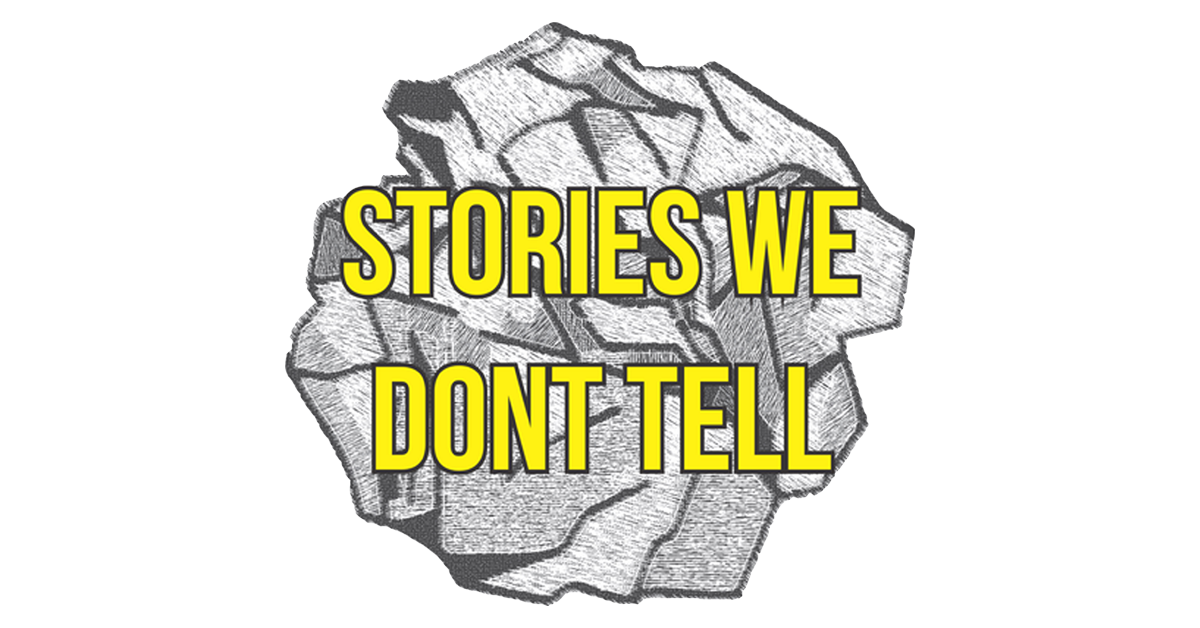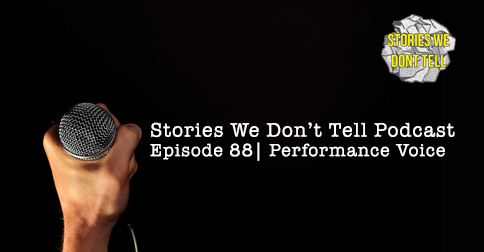This is a transcription of Stories We Don't Tell Podcast Episode 88: Performance Voice. Listen to the podcast episode HERE.
Here we are with the last episode of this Five in Five: After Dark series.
This is one of my favorite things and I've been obsessed with this over the last year because it keeps changing. When you’re a writer and you finally find your writer’s voice, things click into place. In a similar way, through my experience, you develop a performance voice. Or, a way that connects your writing to your delivery. It can take a while to figure this out.
You have to transition from it being on the page to being in front of people. You have a slow purposeful way of delivery. If you wrote a very animated piece in which people are constantly yelling or something I think you would find that difficult to perform.
I've done shows outside of our show where people have tried to make me do something else. And it just doesn't work for me. It’s figuring out if it’s in your wheelhouse.
I could write a single space two and a half page story and I'm good to get under ten minutes. Then it kept getting less and less. Now I’ve got a page and a half and I'll get under ten minutes. For me, my performance voice is slow and I have to be mindful of that when I’m editing. My tone became: I’m telling you this very seriously, why are you all laughing at this? The more I pushed that, the more it seemed to work. It's a combination of finding the right kind of story that matches your voice.
It's interesting when I'm trying to write a story in which I'm able to speak in my own voice versus a story that requires me to constantly be in that time frame of the story. I find it much easier to tell a story in which I'm able to be in the room with the audience and then I'm sort of discussing what's going on at another time.
I'm not going to mention any names but when I've done some other events and they ask me to do something I’m not comfortable with. I don't mean being safe necessarily but finding the place that you can feel the most comfortable in order to explore certain ideas that you want to. So I don't do voices. I know there's a lot of other people that do voices and I did a show one time where they were really trying to push me to do voices. I did them and I fucking hated it and I'll never do it again. It’s just not comfortable for my voice. When you're dealing with another person and trying to help them figure out what's the best way for them to tell the story, listen to how they want to communicate it.
It’s also important to know actually how you want to tell a story and how. And I think if you know how you tell a story then you can write towards that.
So, that’s our last Five in Five: After Dark. To wrap up, write it all out but don’t get lost in the story, pick a moment that represents a larger theme, cut out all the boring parts, edit a lot and work at finding your performance voice.

